Describing someone’s legacy is tough, especially when one is talking about one of Malta’s fiercest pens, Daphne Caruana Galizia, who was brutally killed four years and a day ago in a car bombing.
It is a legacy which one might say is shaped by many factors, or even, as Daphne’s sister Corinne Vella tells The Malta Independent on Sunday, one that is still taking shape.
“The extent of [her legacy] is still taking shape, because we are seeing things happening now as a result of her work… and we don’t know what else will emerge as a result of that work,” she says.
It’s true: countless stories exposing elements of the highly controversial Electrogas power station – of which one of the brains, Yorgen Fenech, is behind bars awaiting trial for allegedly masterminding Daphne’s murder – have emerged since her death, as have more wide-reaching stories such as the recent Passport Papers, an exposé into Malta’s golden passport scheme.
“Certainly the recognition of her work is really important for us as a family. But it’s also really important for the whole point of journalism really, which is to hold power to account – and that fact that her work is being recognised so widely is significant not just for us, not just for the country but also internationally, particularly in Europe where there are problems even there despite the European values,” Vella continues.
The recognition has in fact spread throughout Europe and beyond. Just this week, the first edition of the Daphne Caruana Galizia Prize for Journalism was awarded by the European Parliament to Forbidden Stories - a consortium of journalists set up soon after Daphne was killed.
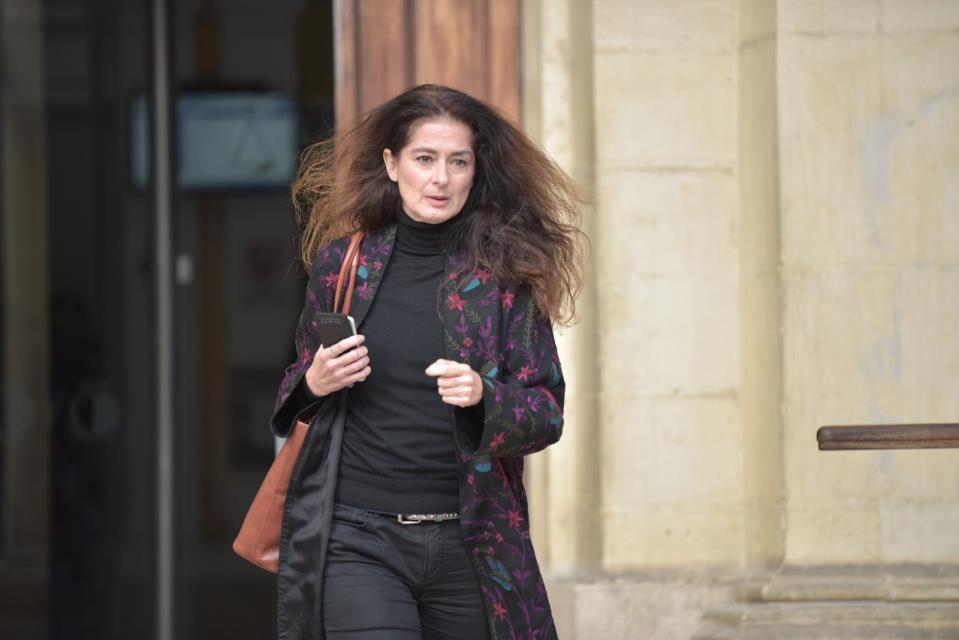
Have things really changed since the public inquiry findings were published?
A major development with regards to the story around Daphne’s murder was the publication of the report by the public inquiry which looked into her death.
The independent inquiry found that the state should shoulder responsibility for the murder, having enabled a hostile environment which allowed it to take place. This was published on 29 July, this past summer, now almost three months ago.
However, despite the momentous conclusions and the time since then, Vella believes that when it comes to how the state interacts treats the media in Malta, little to nothing has changed and that there haven’t been any reforms.
Public perception towards the media since Daphne’s assassination, meanwhile, is a bit more difficult to judge.
“I don’t think it’s actually improved,” Vella says after pondering the question for a few seconds.
“You could argue that people have not done much to improve the perception they have of how journalism operates, but if you start from the assumption that every journalist is to blame for anything that’s gone wrong – that’s absolute nonsense,” she says.
She refers to the increasing scepticism surrounding journalists and their stories as one which is coming from multiple directions.
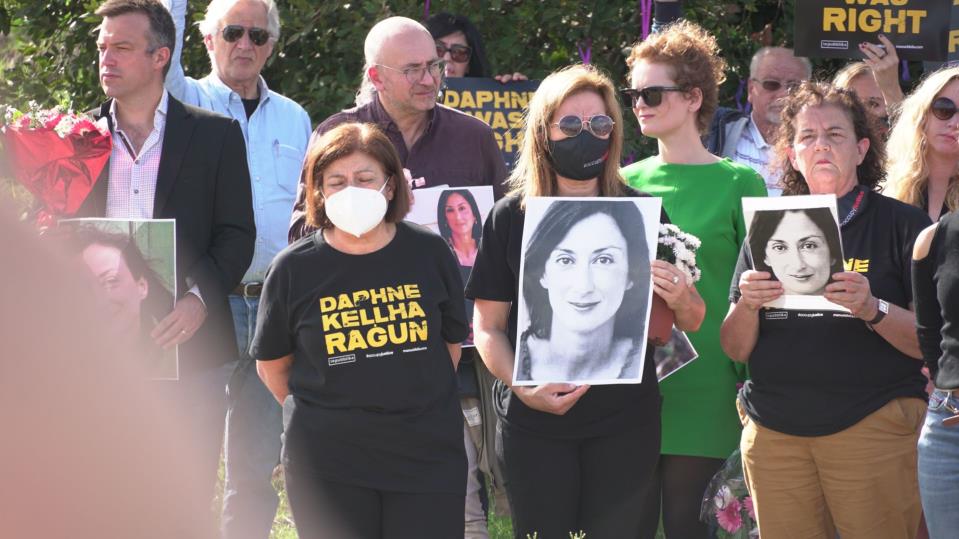
“It is part of a global trend, partly driven by this idea that everything is a matter of opinion and that there aren’t actual facts underneath – this post-modern idea that truth is subjective and that everyone can have their own facts,” she continues.
“But there’s also the problem locally that we don’t have an established tradition of independent media where it is seen as one of our institutions. It’s just a space where people can say what they think, and every opinion is an opinion. As a country we don’t have the understanding that journalism being part of democratic life,” she adds.
That understanding is lacking institutionally and in public perception. Which came first? “Chicken and egg… I don’t know”, Vella says, citing the age-old evolutionary debate.
“Certainly, however, one of the reforms we need to see is journalism being recognised as a fourth pillar of democracy, and that has to be in our constitution,” she says.
Much has been said about national reconciliation since the inquiry and its findings were made public – and yet, Vella notes when asked what the path towards that reconciliation entails, there has been little debate.
Parliament held a single-day debate on the report the day after it was published in summer, and, really and truly, that was pretty much it.
“It was treated as a news item, not as the equivalent of a diagnostic report where you need urgent treatment and need to start discussion options,” she laments.
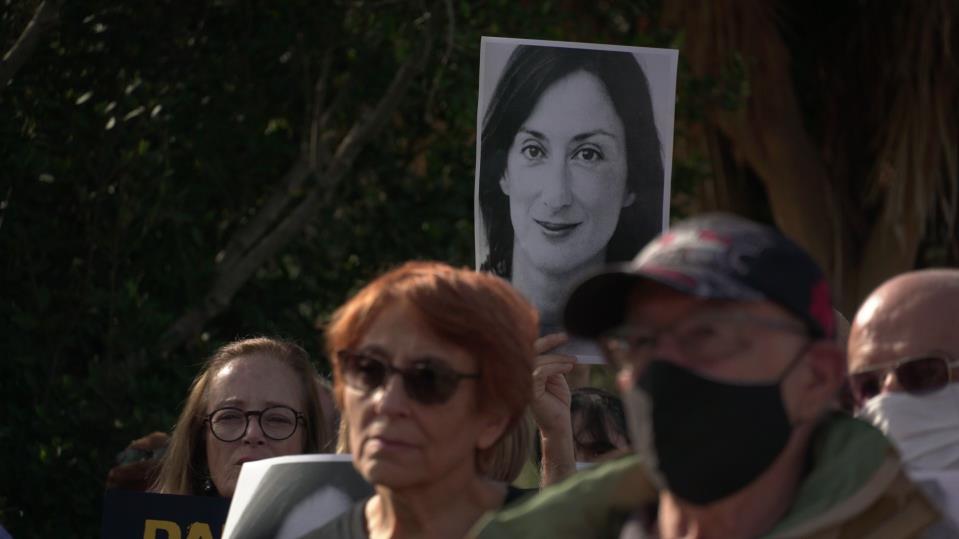
Parliament has reopened now after its summer recess, and Vella believes that the report deserves to be put back on the agenda and dealt with much more urgently because “the problems are there, and they’re not going to go away. It’s like a house about to collapse – you need to deal with it not talk about it.”
As part of this national reconciliation process, President George Vella has met the family and also visited the site of Daphne’s assassination to pay his respects. Prime Minister Robert Abela has also apologised on behalf of the state to the family – yet he is yet to visit the site of the assassination himself.
“A visit to the site is symbolic of a deeper commitment,” Corinne says when asked whether she expects Abela to visit the site out of respect.
The public inquiry, she points out, was state-appointed – meaning that it was the state examining its own system and point the way forward from there. The government is merely the executive of the state, she says.
“I’m not one for hollow gestures. It’s important that at some stage there is recognition – public recognition – of how the state failed. That was assuaged by the President’s visit because, ultimately, he is the head of state,” she says.
“The Prime Minister is the head of the executive – what he does is up to him, but at some stage there has to be acknowledgement by the executive of the State’s failure,” she adds.
She hastens to point out though that action must be “consistent”.
“This is not partisanship, it’s not a personal dispute, this is recognition that Daphne’s murder was not only the death of an individual but that there is an egregious element – in that she was killed because of her work. There is nothing in our law that recognises the murder of a journalist as being egregious – as being one degree more serious than the murder of a citizen, simply because of what it represents to the country as a whole,” Vella adds.
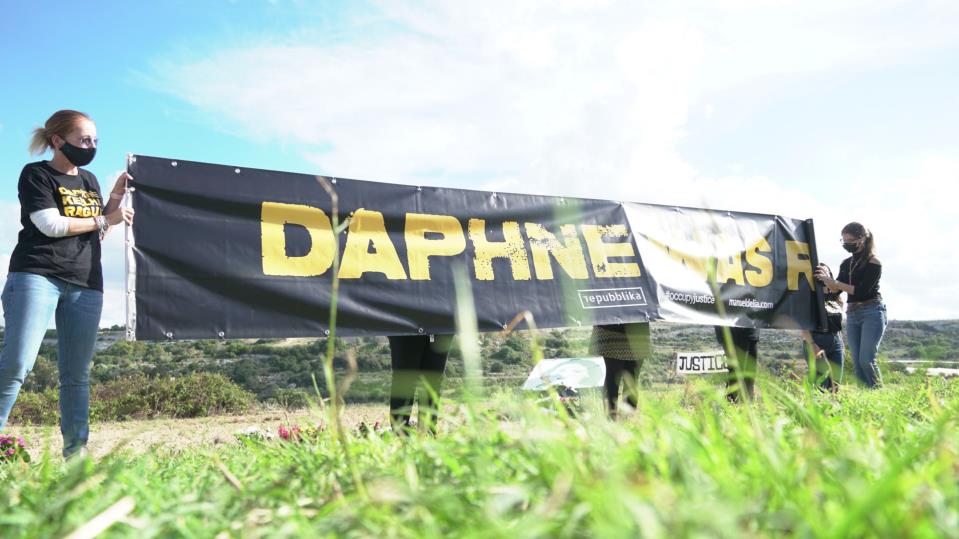
Daphne’s murder: A ‘catalyst’ for civil society mobilisation
The civil society movement and environment which Malta currently has is, in truth, quite new. It is a movement which, on the most part, many believe stems back to the outrage which Daphne’s murder produced.
Vella agrees with that sentiment: “This is something that’s come up when I speak to people who are not Maltese. They sort of take for granted that there always was civil action – but we didn’t have a long tradition of that.”
Malta’s civil action prior to Daphne’s murder was more “sporadic” in nature and motivated by a particular issue, such as the environment, she continues.
“The general up-swirl of people feeling like they have a right to speak and to make their voices heard; that’s something fairly recent I think. Traditionally people rallied behind a banner, but now people are becoming more aware that you can’t just let things go and let someone else do things – you need to be out there doing it yourself. So yes, I do think that Daphne’s assassination was a catalyst for that type of outrage,” she adds.
It’s another part of the legacy that Daphne has left.
A part of that civil society movement was set up by the Caruana Galizia family themselves.
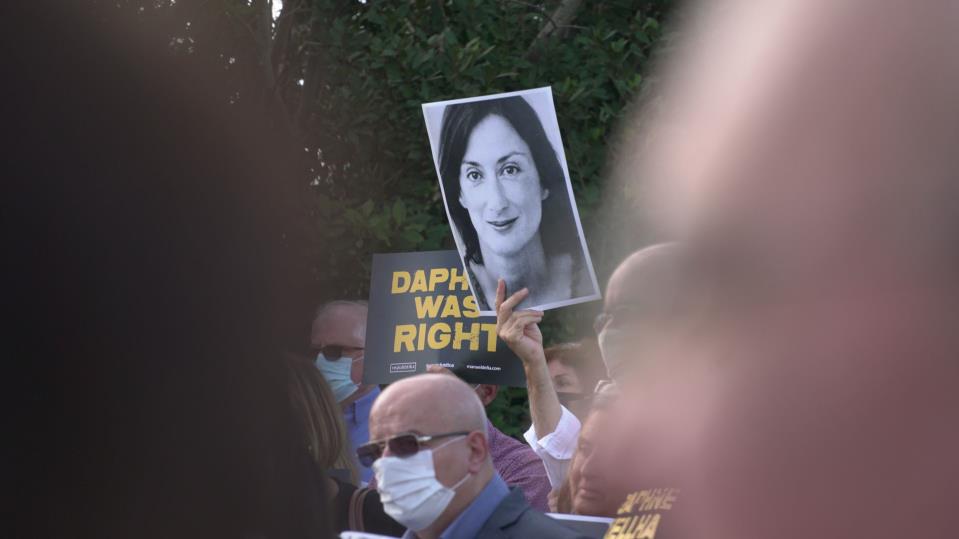
The Daphne Caruana Galizia Foundation was born soon after Daphne’s murder, and was set up with the prime aim of making sure that “justice is served” for Daphne.
“Its principle mission is justice for Daphne – for her murder and her stories,” Vella – who is actively involved in the foundation – says when asked about its aim.
The Foundation has since led developments of significance, such as the setting up of the Malta Investigative Journalism Centre, a secure platform where journalists can collaborate on investigations like the recent Passport Papers, and – more recently – the setting up of the Public Interest Litigation Network.
Asked about the latter measure, Corinne explains that the motive behind is that there are cases where the campaign for justice is not always about the affected individual alone.
“That’s what people fail to understand about Daphne’s murder. It’s not just about her, it’s not just about us as a family, it’s about justice for the country as a whole. Something is wrong in the system which made it happen, and we need to fix this as a country. That principle applies in many cases where the determination of an individual to pursue justice for themselves can actually change the system,” she says.
However, not many people have the stamina, knowledge, or means to do that – which is where the PILN comes in. It is a network of lawyers willing to work on public interest cases – “working on a principle through the case of an individual,” as Vella describes it.
The cases which the network takes on are chosen by a governing body, so it’s not a matter of just saving on lawyer’s bills.
The PILN is currently already part of one case – that of Lamin Jaiteh, the Gambian construction worker who was recently grievously injured in a fall at a construction site and then dumped on a pavement by his boss who had taken him into his van under the premise of a promise to take him to hospital for treatment.
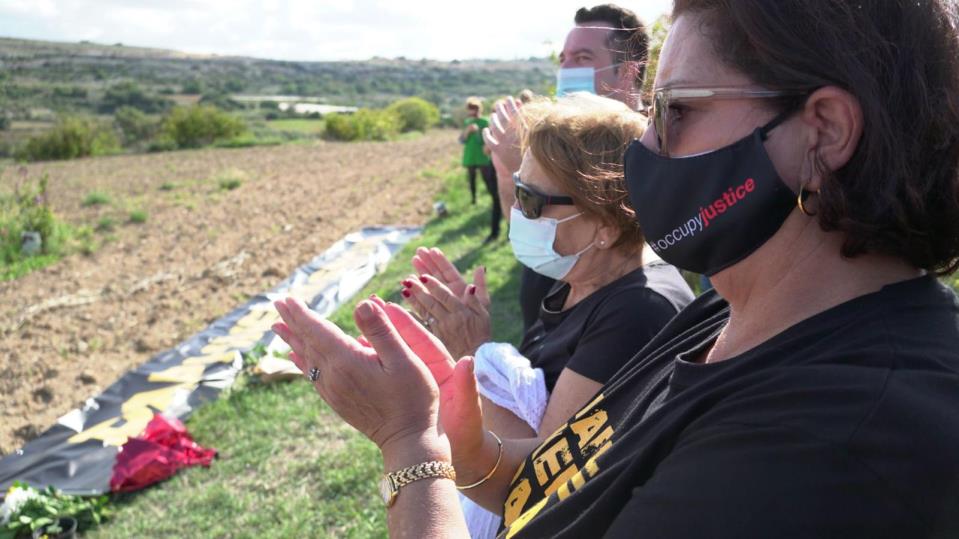
What do we have left to learn?
“People need to recognise that journalism has a place in a functioning democracy,” Corinne says when asked what lessons still need to be learnt, even after the conclusions of the public inquiry.
“You do not have a democracy unless you have good journalism, and you cannot have good journalism unless you have an environment which enables it. That doesn’t consist of regulating journalists, it consists of creating an ambience where power can be held to account and where people can ask questions – otherwise how do they know what they’re dealing with? That’s a principle which isn’t fully appreciated,” she continues.
That principle is hampered further, she says, by the domination of partisan media, where two conflicting versions of what is happening and “no common set of facts” are presented.
And what does the media need to learn?
First and foremost is a matter of rights and obligations, Vella says. “It is a state responsibility to create an enabling environment for journalism, to reduce risk, and to take action any time a crime is exposed – but journalists need to take sensible precautions,” she says.
“It’s not that they’re to blame – but there is value of being aware of early warning mechanisms though. But never run with the idea that you’re responsible for your own safety or security. People blamed Daphne because she refused police protection – which was untrue – but the responsibility for safety and security lies with the state,” she adds.
“The values of good journalism remain what they are – they are not changed by external circumstances,” Vella says in reference to vulnerabilities which news organisations may be facing due to economic pressures.
“There is a very difficult balancing act for business managers, news editors and journalists – but good journalism is definitely worth fighting for. I don’t think there’s ever been a bigger need for it than there is now,” she says.